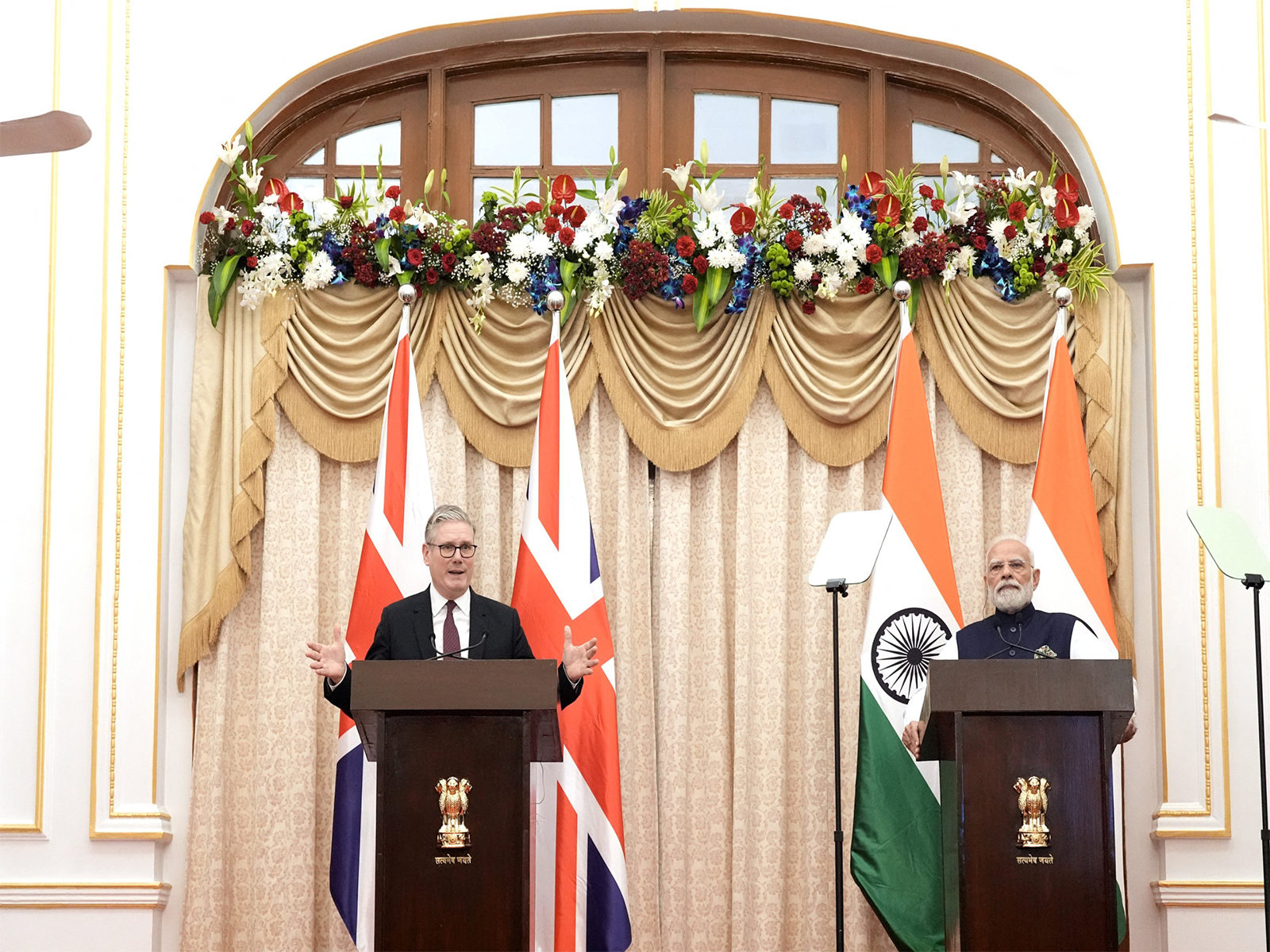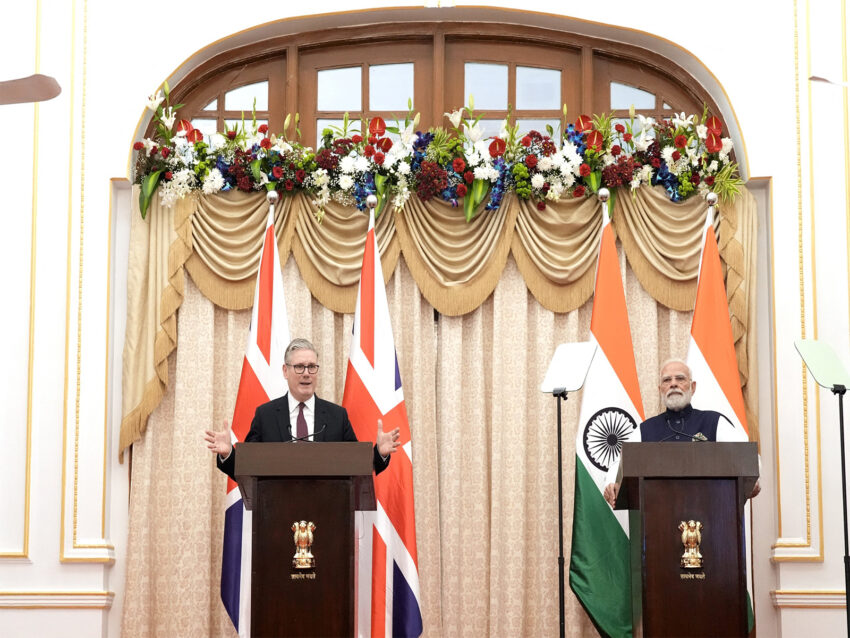
New Delhi [India], October 10 (ANI): India and the United Kingdom have agreed to deepen their defence and security partnership through enhanced military exchanges, training collaborations, and joint capability-building initiatives, as per an official statement.
According to the statement, Prime Minister Narendra Modi welcomed the port call of the UK’s Carrier Strike Group and the Royal Navy’s Exercise KONKAN with the Indian Navy.
Both sides are committed to robust maritime security cooperation in the Indo-Pacific, including the establishment of the Regional Maritime Security Centre of Excellence (RMSCE) under the Indo-Pacific Oceans Initiative (IPOI).
In the context of cooperation on training, the statement noted that the two Leaders welcomed progress on an arrangement that will see Indian Air Force Qualified Flying Instructors integrated into the UK Royal Air Force training.
This will take place alongside an agreement that will further strengthen the training and education relationship between the two nations.
Both Prime Ministers also expressed satisfaction at the intent to finalise an India-UK Inter-Governmental Agreement (IGA) on cooperation in developing maritime electric propulsion systems for Indian Naval platforms.
According to the statement, both leaders announced a decision to proceed via a government-to-government route for an initial supply of Lightweight Multirole Missile (LMM) systems.
This initiative will bolster India’s air defence capabilities and, in the spirit of Atmanirbhar Bharat, support the current and future requirements of the Indian Ministry of Defence while fostering long-term collaboration on complex weapons.
The two Prime Ministers unequivocally and strongly condemned terrorism and violent extremism in all its forms and manifestations.
They called for zero tolerance towards terrorism and emphasised concerted international efforts to combat it comprehensively and sustainably, in accordance with the UN Charter and international law.
The statement further said both sides agreed to counter radicalisation and violent extremism, combat terrorism financing, and prevent the cross-border movement of terrorists.
They also underscored the need to curb the misuse of emerging technologies for terrorist purposes, tackle recruitment, and enhance cooperation in information sharing, judicial collaboration, and capacity building.
Both leaders condemned in the strongest terms the April 2025 terrorist attack in Pahalgam, Jammu and Kashmir, and committed to taking decisive and concerted action against globally proscribed terrorists, terror entities, and their sponsors.
They reaffirmed their resolve to strengthen bilateral and multilateral cooperation in these areas, including through the United Nations and the Financial Action Task Force (FATF). (ANI)


